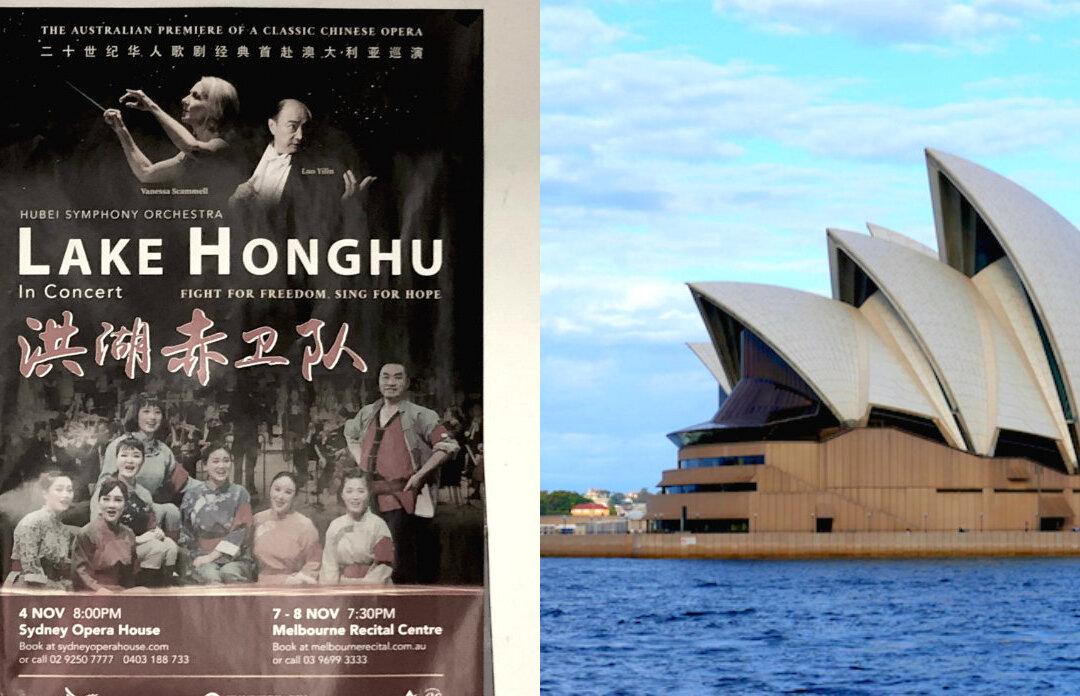Some Australian-Chinese are calling out what they say is a new attempt by the Chinese Communist Party (CCP) to export influence to Australia via soft power, by raising their concerns about a modern Chinese concert titled “Lake Honghu” to debut in Sydney and Melbourne in November.
The production, to be shown at the Sydney Opera House for one day on Nov. 4, and at the Melbourne Recital Centre for two days on Nov. 7-8, centres around the military conflicts between the Kuomintang (KMT, or Chinese Nationalist Party) and the CCP that occurred around 1930 in Hubei—part of the Chinese Civil War between the two groups that spanned 1927 to 1950.




